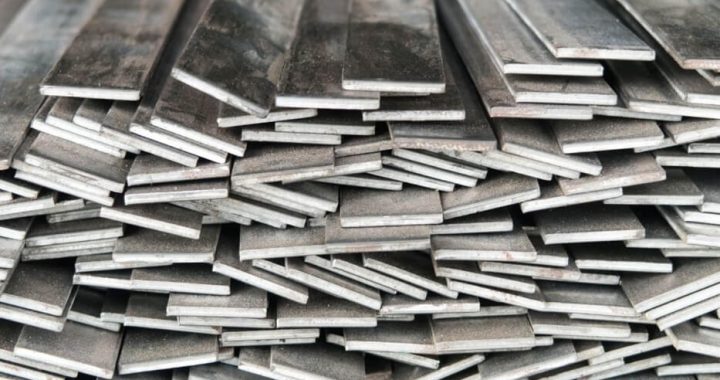Selecting the right flat bar is a critical decision in metalworking projects, impacting success in terms of performance, durability and overall quality. Factors such as size, material and intended application play pivotal roles in achieving optimal results. In this guide, trusted metal fabricator, Ezimetal, navigates through the considerations essential for choosing the perfect flat bar for your metalworking projects.
Types of Flat Bars
Flat bars come in various materials, each offering unique properties tailored to specific metalworking needs. Mild steel flat bars, known for their durability and strength, are ideal for structural supports and general fabrication. Stainless steel flat bars boast corrosion resistance, making them perfect for applications in harsh environments, such as marine or chemical settings. Aluminium flat bars, prized for their lightweight composition, find prominence in projects where reduced weight is crucial, such as in aerospace or transportation industries. The diverse characteristics of these materials provide metalworkers with versatile options to match the requirements of their projects with precision.
Flat Bar Sizes and Dimensions
Flat bar size and dimension considerations are crucial when selecting the right bar for metalworking projects. The thickness, width and length of the flat bar directly impact its structural integrity and performance. For optimal results, carefully assess project requirements to determine the appropriate dimensions. Consider the load-bearing capacity, desired strength and overall design specifications. A balance between these factors ensures that the chosen flat bar seamlessly integrates into your project, providing the necessary support and functionality. Trust in Ezimetal’s expertise to guide you in selecting the ideal size and dimensions for your specific metalworking needs.
Material Properties
When choosing the ideal flat bar for a project, material properties are paramount. Considerations such as strength, corrosion resistance and weldability play crucial roles in material selection. The strength of a flat bar is vital for load-bearing applications, ensuring structural integrity. Corrosion resistance is essential, especially in outdoor or corrosive environments, to enhance longevity. Weldability is a key factor for projects requiring intricate designs and precise joins. Evaluating these properties guides metalworkers in selecting materials that align seamlessly with the specific demands of their tasks, ensuring optimal performance and durability in diverse metalworking applications.
Intended Use and Application
For structural supports, the focus is on strength, favouring materials like steel. Framework fabrication demands a balance of strength and corrosion resistance, making stainless steel a prime choice. Brackets, crucial for support, benefit from materials with excellent weldability, such as mild steel. Ornamental detailing, requiring precision and aesthetics, calls for materials like brass or aluminium. In each application, the intended use dictates material and size choices, showcasing the importance of tailoring flat bar selections to specific project requirements.
Choose Ezimetal Flat Bars
The right flat bar is a cornerstone of successful metalworking projects. By understanding the nuances of size, material and application, metalworkers can elevate their craftsmanship, ensuring optimal performance, durability and the high quality finish of their products.
Trust in Ezimetal’s expertise to guide you through the diverse range of flat bars. Discover our range or contact us online for expert guidance or a custom quote for your next project!

